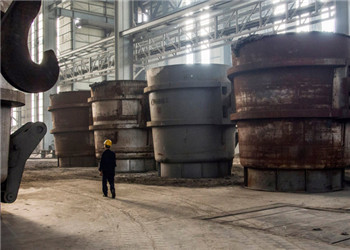(单词翻译:单击)

HONG KONG — China’s industrial slowdown is showing signs of sharpening, as its trade slump deepened further in August amid weaker demand from overseas buyers.
香港——由于海外买家需求进一步疲软,中国8月份的对外贸易下滑加剧,工业增长放缓的迹象愈加明显。
Once seemingly indomitable as the world’s workshop, China is now facing its most protracted declines since the global financial crisis, with overseas shipments falling 5.5 percent last month compared with a year earlier. That has dragged total exports 1.4 percent lower in dollar terms in the first eight months of the year.
曾几何时,中国似乎是一家顽强不屈的世界工厂,而目前正面临自全球金融危机以来最持久的经济下滑,上月按美元计价的出口商品总值与去年同期相比下降了5.5%。这使得今年头8个月按美元计价的出口总值降低了1.4%。
It is a sign that the country’s sprawling manufacturing sector is losing competitiveness: Labor costs are rising relentlessly and the currency, the renminbi, remains relatively strong despite its devaluation last month. The currency move still left Chinese goods notably more expensive for foreign buyers than they were even a year ago.
这是中国庞大的制造业正在失去竞争力的标志:劳动力成本持续上升;尽管人民币上月贬值,但中国货币仍相对强劲。上月的贬值仍让中国商品对国外买家来说,保持在明显较高的价位,即使是与一年前相比。
At the same time, China’s imports are falling even more sharply, declining last month for the 10th month in a row, with a drop of 14 percent by value.
与此同时,中国的进口下降幅度更大,上个月是进口连续下滑的第10个月,进口商品总值下降了14%。
The weak trade data rattled regional markets. Japan’s main stock index, the Nikkei 225, closed 2.4 percent lower, erasing all its gains so far this year.
中国疲软的贸易数字使亚洲地区的股市紧张。日本的主要股票指数日经225指数以2.4%的降幅收盘,回吐了今年到目前为止的全部涨幅。
In Shanghai, stocks initially fell more than 2 percent when the trade figures were released. But heavy buying in the afternoon set off a rally that helped shares close 2.9 percent higher.
在上海股市,贸易数字发布后,上证指数曾一度暴跌了2%以上。但是,午后的大量购入让股市出现反弹,反弹帮助上证指数以2.9%的涨幅收盘。
That pattern has been seen often in recent weeks, as China’s government appears to continue to try to support the country’s slumping stock markets. State brokerages last week pledged to contribute an additional 100 billion renminbi, or about $16 billion, to China’s stock bailout fund.
随着中国政府看来继续其支撑国内低迷股市的尝试,股市的这种交易模式在最近几周很常见。国家券商上周做出保证,将为中国股市的救市基金追加1000亿元人民币(约合160亿美元)的资金。
Economists say sharp drops in global prices for commodities like oil and industrial metals have propelled the decline in import value. But the sheer volume of imports of crucial industrial raw materials like coal, iron ore, copper, aluminum and steel has also fallen this year. The declines are a clear sign of weakening domestic demand in China as a slump in manufacturing and new housing construction drag on economic growth.
经济学家表示,石油和工业金属等大宗商品的全球价格急剧下降也推动了进口总值的下降。但是,诸如煤、铁矿石、铜、铝和钢材等关键工业原料的宏大进口规模今年也在下降。这种下降是中国国内需求低迷的一个明显标志,中国经济增长放缓的主要原因是中国制造业和新住房建设骤减。
Beck Cai, a sales manager at the Shanghai Steel Fashion Industrial Company, a manufacturer and exporter of prefabricated steel structures, said his company’s business in August dipped as much as 40 percent compared with a year earlier.
预制钢结构制造商和出口商上海森奉实业有限公司(Shanghai Steel Fashion Industrial Company)的销售经理贝克·蔡(Beck Cai)说,公司8月份的业务,与去年同期相比,减少了40%。
“I don’t think it has anything to do with the way we operate; it is mainly that the overall environment is slowing down,” Mr. Cai said. “As far as the recent devaluation of the renminbi, it is still too early to tell how it will impact our business.”
“我不觉得这与我们的运作方式有什么关系;主要是整体经济环境明显放缓,”蔡先生说。“至于人民币近期的贬值将如何影响我们的业务,现在做结论还为时尚早。”
China’s leadership last month made the surprise decision to devalue the currency by about 3 percent, the renminbi’s sharpest drop in two decades. But China’s central bank has since intervened on a huge scale, propping up the currency further by selling dollars for renminbi.
中国领导人上个月出人意料地决定让人民币贬值3%,这是20年来最大的幅度。但那以后,中国央行采取了大规模的干预措施,通过抛售美元、购进人民币,再次推高了中国货币的价格。
As a result of this intervention, China is burning through its huge stockpile of foreign exchange reserves at the fastest pace on record. Reserves fell by nearly $100 billion in August alone, although that still leaves $3.56 trillion, the central bank reported on Monday.
这种干预的一个结果是,中国正在以创纪录的速度减少其庞大的外汇储备。据央行周一发布的信息,外汇储备仅在8月份的一个月里就减少了近1000亿美元,但仍有3.56万亿美元之多。
Still, analysts say the recent devaluation was probably too small to help China’s exports.
不过,分析人士认为,近期货币贬值的幅度可能仍太小,无法帮助中国的出口。
“The renminbi has appreciated substantially in real effective terms against a basket of currencies in the past year, which in relative terms makes China’s exports less competitive than in the past,” Ding Shuang, the head of greater China economic research at Standard Chartered, wrote in an email. “But China still registered huge trade surplus and there is no reason for significant devaluation against most currencies.”
“在过去的一年里,人民币对一篮子货币的有效实际汇率大幅增长,这使得中国的出口相对来说比过去的竞争力下降,”渣打银行大中华区研究部主管丁爽在一封电子邮件中写道。“但中国仍有巨额贸易顺差,没有理由认为人民币将会对大多数货币出现大幅贬值。”
China’s trade surplus with the rest of the world has surged, rising to $365 billion in the first eight months of the year. This is because imports are declining more sharply than exports.
中国对外贸易顺差激增,总值上升到今年头8个月的2.23万亿元。这是因为进口下降幅度明显地高于出口。
But the trade surplus also helps soften the blow of investors’ pulling money out of China amid expectations that the renminbi will weaken further.
但贸易顺差也有助于缓解人民币的贬值压力,这种压力来自投资者因预期人民币将进一步走软而把资金撤出中国的做法。
Analysts at Nomura calculate the pressure on China’s currency to weaken is stronger now than at any time since 1994, when the country adopted its modern exchange rate system and devalued the currency by a third.
据野村证券分析师的计算,中国货币现在面临着比1994年以来的任何时候都大的贬值压力,中国在1994年引入了目前使用的现代化汇率制度,当时曾让人民币贬值了三分之一。
“Given the Chinese economy’s weak growth and deep-seated structural challenges, we expect renminbi depreciation pressure to remain,” the Nomura analysts wrote in a research note on Tuesday. “However, unlike in the late 1980s and early 1990s, we expect this pressure to be moderate and prolonged, rather than sudden and severe.”
“考虑到中国经济增长乏力、以及更深层次的结构性挑战,我们预期人民币贬值的压力将持续存在,”野村分析师周二在一份研究报告中写道。“但是,与20世纪80年代末、90年代初不同,我们预期这种压力是适度和长期的,而不是突然和严峻的。”
One potential complication in the August trade figures may be the exchange rate used by the customs administration. The administration said exports totaled $196.883 billion in dollar terms and 1.204 trillion renminbi in local currency terms.
8月的贸易数据可能存在一个让情况复杂化的问题,涉及海关总署使用的汇率。该机构称,出口总额以美元计价是1968.83亿美元,以本币计价是1.204万亿元人民币。
That implied an exchange rate for August of 6.116 renminbi per dollar, the same implied rate used in the July trade figures. But China devalued its currency on Aug. 11, and the average exchange rate in August, according to the central bank’s official fixing, was 6.3056 renminbi per dollar.
这表明,8月使用的汇率和7月的贸易数据使用的汇率是一样的,同为6.16元人民币兑1美元。但中国在8月11日让人民币贬值,而从央行发布的官方汇率来看,8月的平均汇率中间价为6.3056。
The reason for the discrepancy was unclear. But it raised the possibility that China’s actual decline in exports in renminbi terms was not as bad as the 6.1 percent decrease reported — or that the real decline in dollar terms might have been worse than the 5.5 percent drop reported.
出现这种差异的原因尚不清楚。但它提出了一种可能性,即以人民币计价的中国出口实际下滑程度可能并没有通报的6.1%那么严重,或者是以美元计价的实际下滑程度可能多于通报的5.5%。
Representatives of the customs administration’s press office could not be reached for comment after normal working hours.
因为过了正常的工作时间,本报未能联系到海关总署新闻办公室的代表请求置评。


